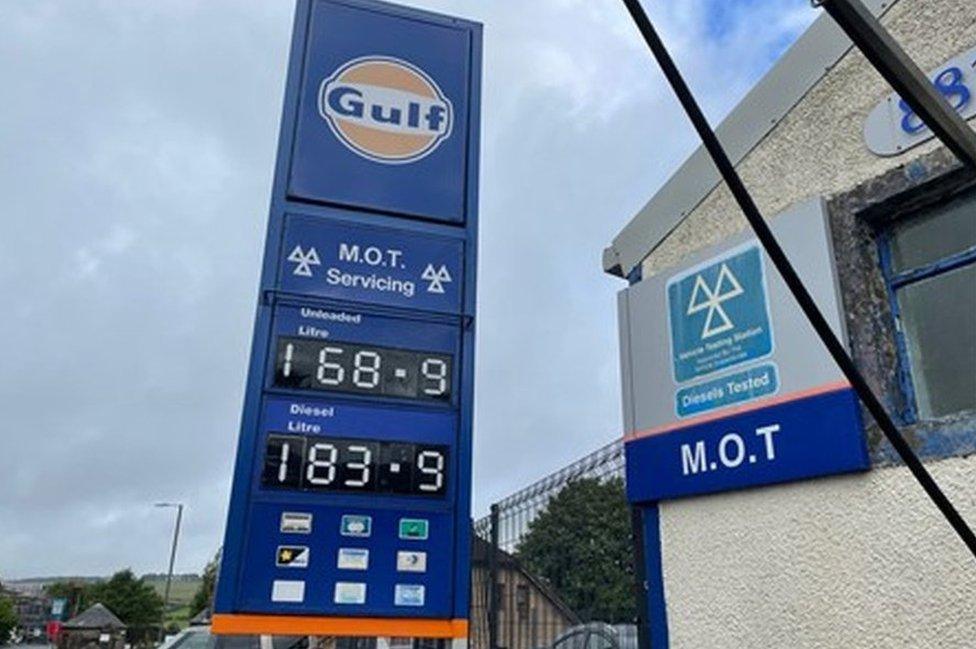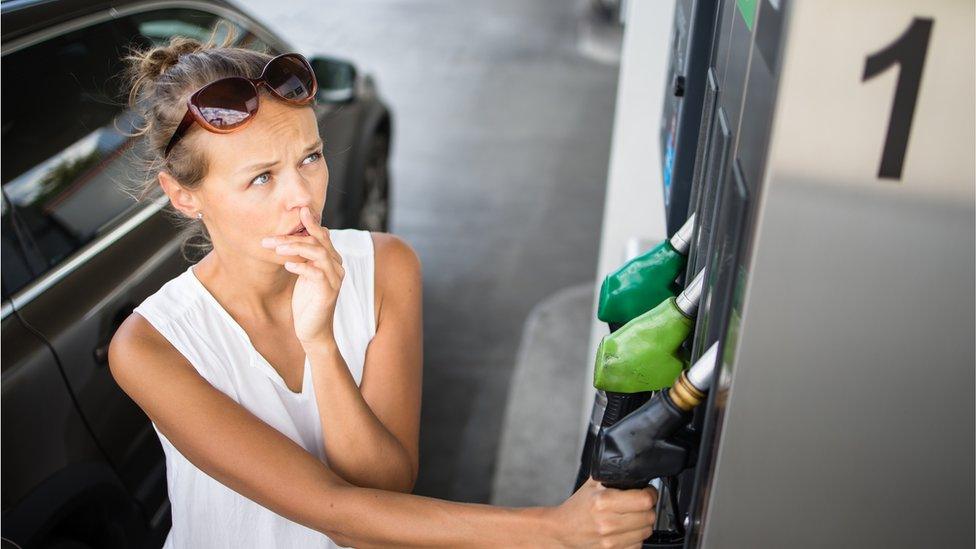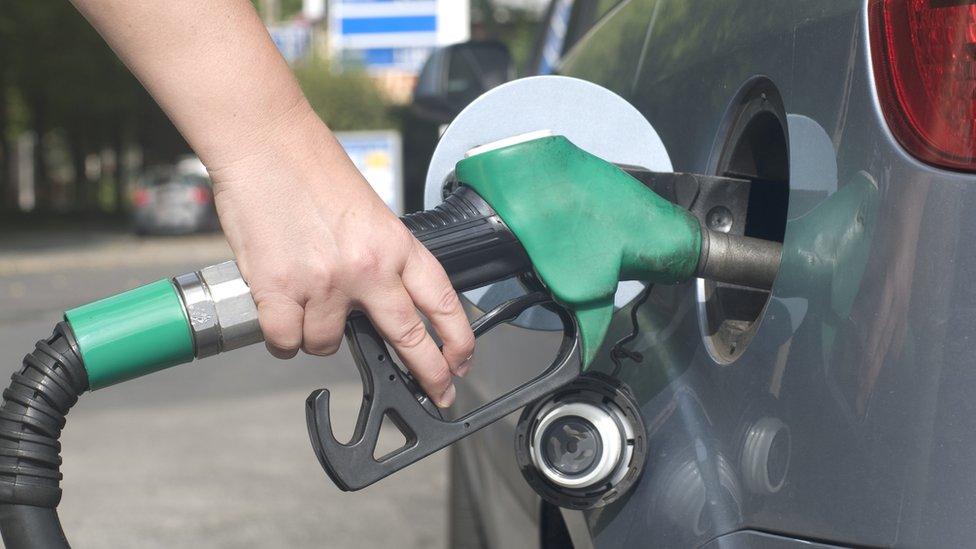The Neilston petrol pump offering low prices to locals
- Published
John Robb says he has passed on to customers the "falling price" that he received from his supplier
A village petrol pump owner is vowing to keep his prices lower than big-name competitors despite making "no money".
John Robb, of John Robb & Son in Neilston, East Renfrewshire, is selling unleaded petrol for 168.9p and diesel for 183.9p – among the cheapest prices in the region.
He says his firm is doing so to help ease locals' anxiety about poverty.
It comes as major retailers face criticism for failing to pass on a drop in wholesale prices to customers.
Average petrol pump prices fell by nearly 9p in July to 182.69p per litre, while diesel fell by almost 7p to 192.38p per litre, according to the RAC.
However, the motoring group argues drivers are still paying too much at the pumps when compared with wholesale prices, which have fallen by 20p over the past eight weeks. It says petrol should be around 167p per litre.
Mr Robb immediately cut his petrol and diesel prices in line with the latest weekly wholesale rate.
Asked why he did not delay cutting prices like some larger firms, the business owner told BBC Scotland: "We're in a small community and it reflects poorly on you.
"We're here in the long term. We're not here for a short-term grab of profits.
"We're here to support the community as much as they support me."
He says the petrol station, which has been passed down through four generations of his family, is making "no money at all" from fuel sales, adding: "It's a break-even service at the moment."

John Robb & Son in Neilston is offering lower petrol pump prices than many big-name rivals
The strategy does have its benefits, however, with the Neilston firm seeing an increase in customers coming to its workshop.
"It generates a lot of business," Mr Robb said. "You do tend to know because the first folk round are the taxi drivers. So they must pass it round on the radio.
"That's always a sign when you're competitive, you'll see a lot of taxis."
Lower prices are welcome in a community that is struggling with the cost of living crisis.
"People are not short on being vocal about prices," Mr Robb said.
He added: "Most of it's jovial but you can see the anxiety, the worry in their faces, because it's a big expense filling your car these days."
The Neilston business owner said marginal profits may explain why forecourt bosses may have been slow to drop their prices.
"Over the years, we've all been operating on a very tight margin and possibly some people are trying to recoup some of their losses," he said.
"It's not a business you would go into. We're a four-generation business now.
"It's always been here and we'll continue with it as along as we can cover our costs.
"You couldn't make a living from it. It's a no-return business. That's why there are so few sites left."
'Drivers are losing out'
The RAC has called on the fuel industry to "go further and go deeper" in passing on savings to drivers.
Fuel spokesperson Simon Williams said recent price cuts have come "a little bit too late", adding: "The UK and Scotland's hard-pressed drivers are losing out at the pumps because of a lack of transparency from the biggest retailers."
However, not all analysts agree.
Steve Irwin, director at Portland Analytics, said: "Over the last eight weeks, prices have jumped around; it's understandable if retailers have tried to smooth those differences out in their prices.
"There is often a lag between wholesale prices dropping and a drop in prices at the pump. I expect we will see further price drops in petrol in forecourts over the next week or so of a further 5, 6 or even 7p a litre."


There is no disputing discrepancies in pump prices between different communities. The competition watchdog recently investigated claims the industry is out to make a quick buck.
Despite retailers consistently denying claims of profiteering, some people are now almost obsessed with the exact details of why they are having to endure eyewatering costs. Pictures of local forecourts are filling community Facebook groups where those with the highest prices are called out. Alternatively, the one who is a few pence cheaper becomes the local legend.
The UK Treasury is the big winner when it comes to every drop of fuel that goes in the car. Almost half of the cost of every litre goes to the UK government through fuel duty and VAT, which begs the question of whether more can be done to ease the burden.
The UK's 5p cut to fuel duty earlier this year has been dwarfed by counties like Germany where 25.1p per litre was slashed, 21.2p in Italy and 14.5p in Ireland. Something for the in-tray for the incoming occupant of Downing St?

Related topics
- Published3 August 2022

- Published10 June 2022
